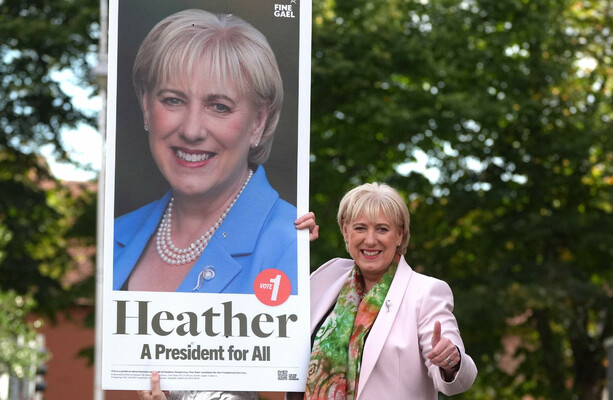Copyright timesnownews

More than 160 years after its publication, 'Madame Bovary' still feels startlingly modern. Gustave Flaubert’s tragic heroine, Emma Bovary, remains one of literature’s most painfully recognisable figures, a woman who mistakes intensity for meaning and longing for purpose. Her hunger for beauty, romance, and transcendence has outlived the 19th century, morphing seamlessly into the restlessness of our own age. In a world defined by endless options and curated perfection, Emma’s dissatisfaction feels less like fiction and more like prophecy. Also Read: Why Catch-22 Feels Like the Ultimate Satire of Bureaucracy in Modern Life The Birth of Modern Restlessness When 'Madame Bovary' was first published in 1856, it scandalised French society. Flaubert was even tried for obscenity, not because Emma’s actions were shocking, but because her inner life was. The novel’s realism stripped away moral judgment and laid bare the disquiet of ordinary existence. Emma was not wicked, merely human. She wanted more: more passion, more admiration, more proof that her life mattered. That yearning — raw, unfiltered, and unfulfilled became the emotional template for modern consciousness. Long before psychology or social media, Flaubert identified the quiet despair of wanting to feel extraordinary in an unextraordinary world. Emma’s tragedy lies not in her affairs or her debts but in the simple truth that nothing ever feels enough. The Mirror of Modern Desire In today’s culture, Emma Bovary might scroll endlessly through social media, chase curated perfection, or measure her worth by external validation. Her hunger for transcendence would find endless outlets — luxury, attention, aesthetics, yet still return to emptiness. Flaubert understood this cycle long before algorithms learned to monetise it. He wrote that Emma was “suffering and seeking happiness through every passion, through every experience, and never finding it.” That line could easily describe the restless modern mind, one that consumes experiences as distractions rather than fulfilment. Emma’s tragedy is no longer confined to 19th-century France; it has become the emotional geography of the 21st century. Flaubert’s Precision and the Anatomy of Illusion Flaubert once said he wanted to write a book about “nothing” — meaning, not a grand adventure or moral lesson, but the texture of daily disillusionment. His style, painstakingly precise, captures the gulf between what Emma feels and what reality offers. Every gesture, every purchase, every affair becomes a performance of desire rather than an answer to it. Through that precision, Flaubert dissected the modern self — restless, self-aware, and endlessly performing. He revealed that our dissatisfaction does not stem from failure but from the imagination’s refusal to accept limitation. Emma’s problem is not that she wants too much, but that she believes happiness lies somewhere else, always just beyond reach. The Feminine Face of Existentialism Before Camus and Sartre articulated existential angst, Emma Bovary lived it. Her rebellion was not political but emotional; her pursuit of meaning came through love, fantasy, and consumption rather than ideology. Yet her crisis was profoundly existential. She confronts the unbearable truth that freedom can feel empty when it lacks direction, and desire can become its own prison. Emma’s story also exposes how gender deepens that struggle. Trapped within domestic and social confines, her yearning is both universal and distinctly feminine. She does not have the luxury of creative or intellectual rebellion, so she expresses her discontent through the only avenues available to her, which are romance and consumption. In doing so, she becomes both victim and architect of her despair. The Cost of Wanting More Flaubert’s genius lies in his refusal to condemn Emma. He does not pity her, nor does he excuse her. He simply observes her, with the cool precision of a scientist and the empathy of a poet. That detachment forces readers to recognise themselves in her illusions. We, too, chase meaning in symbols — careers, possessions, relationships only to find that fulfilment is a moving target. In Emma’s final moments, poisoned and delirious, her dreams collapse under their own weight. It is a grim ending, yet not without clarity. Her tragedy is not that she wanted too much, but that she mistook the surface for the soul. Also Read: The Timeless Relevance of '1984': How George Orwell's Dystopia Mirrors Today's World Every generation rediscovers Emma Bovary because her story does not belong to one century. It belongs to anyone who has mistaken longing for purpose, or beauty for happiness. Her restlessness predicted the emotional exhaustion of modern life, where choice masquerades as freedom and satisfaction remains just out of reach. Flaubert’s masterpiece endures because it refuses consolation. It does not offer redemption, only recognition, the unsettling awareness that wanting more may be the most human desire of all. In that sense, 'Madame Bovary' remains a mirror we cannot turn away from. It asks a question that still defines our age: what happens when having everything is not enough? The answer, as Emma teaches us, lies not in more, but in understanding why we keep wanting at all.



